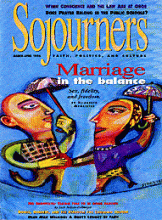The democratic tradition at its best has always had those who act on conscience in such ways that knowingly defy the immediacy of legal regulation. These people have recognized the importance of law but also recognized that law is in part fluid, that laws change, that the relation of laws to civic life is sometimes dynamic and malleable.
The opposite viewpoint would be the absolutizing of law which insists that under no circumstances can a person break law, that no situation warrants civil disobedience. I would argue that such an absolutist view of law is a form of tyranny. Democracy by nature is a risk that both permits and even encourages various forms of citizen involvement. It is premised on people taking an active role in governance and in formulating the larger social good-but fully aware that human nature is flawed and potentially dangerous. In particular, democracy makes room for individual conscience, as Thoreau argued. Passive citizenry is probably a more serious danger to genuine democracy than occasional law-breaking by well-intentioned citizens. Democracy is, in a sense, a Pandora's Box of human volatility. The alternative of tyranny that seeks to control all human volatility may offer a better chance of social "order," but it is unacceptable to the human spirit and has never proven effective in enhancing the social good.WILL O'BRIEN works with Project HOME, which provides housing and support services for homeless persons in Philadelphia..
Read the Full Article

Already a subscriber? Login
